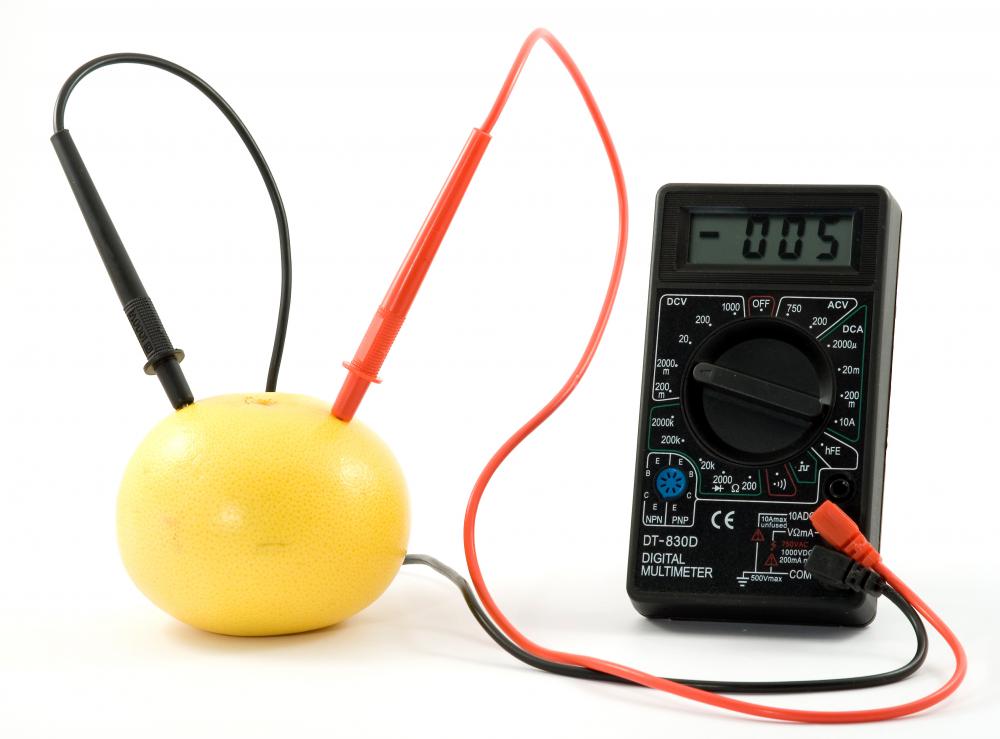At WiseGEEK, we're committed to delivering accurate, trustworthy information. Our expert-authored content is rigorously fact-checked and sourced from credible authorities. Discover how we uphold the highest standards in providing you with reliable knowledge.
How Do I Choose the Best Science Projects for Kids?
When choosing science projects for kids, you'll likely be presented with many options. One way to select a project is to consider the children's age, interests, schoolwork and personal abilities. Taking all of these factors into account can make your decision much easier.
Make sure that any science projects for kids correlates with the children's abilities. Generally, it would be inappropriate to choose a science fair project intended to be completed by someone in high school for a student who is still in elementary school. If a child is interested in or capable of advanced studies, it might be appropriate to choose a science project that is a little above his or her grade level.

When choosing science projects for kids, learn the types of science in which the children have the most interest. Science projects can be intended to be conducted over weeks or months. You should make sure that the science project's topic or theme will hold the children's interest for that long. Choosing a science project that appeals to a child can result in him or her assimilating the lesson learned from the project easier.

You'll have to be specific about your science fair project's topic or question. Even science projects for kids address specific scientific questions or problems related to science. When you've identified the branch of science to which a child respond, ask him or her what particular problem or topic has always captured his or her attention. You can base the science fair project off the child's answer. Try to choose a topic that relates to his or her schoolwork, if you can.
Museums can be great sources of inspiration when looking for science projects for kids. Consider visiting one to start brainstorming for science fair projects. Children's museums can even have literature available about science projects that correspond to exhibits. If you see exhibits that you'd like to use as a springboard for a project, ask a museum guide for further information. He or she might be able to help you.
Similarly, you'll want to choose a science project that is able to be easily researched. Libraries, museums and scientific websites should help students find the information necessary to formulate a hypothesis and complete the experiment. Archives of scientific magazines might be especially helpful when researching a project.
Safety is always an consideration that you should take into account when choosing science fair projects for kids. You'll want to make sure that the projects do not pose threats to the children's well-being. Make sure that you have the appropriate safety gear available and that you train the children, if necessary, to perform the science experiment without hurting themselves. Even if you provided training and safety gear, you should supervise the children's activities relating to the project at all times.
AS FEATURED ON:
AS FEATURED ON:












Discussion Comments
@KoiwiGal - I do agree that children need to have something that will interest them, but parents and teachers also have to make sure that they impose the right kind of boundaries on the project or the child could end up being disappointed by the results.
My parents were very open to my picking whatever I wanted for my science projects and I often came up with topics that were really impossible to test or develop for a student my age and with my ability. No matter how wonderful the idea sounds in theory, if you can't actually test it then it's not going to fly in a science fair or a classroom.
@irontoenail - I think one of the best ways to get and maintain the student's interest is to let them come up with and design their own experiment though. Even quite young students are capable of doing this if the parameters are explained carefully to them.
I also think it's important that they are truly shown what scope science has when it comes to potential science project ideas. Almost anything can be studied scientifically if they are interested in it, it's just a matter of asking a question and then looking for an answer.
Getting and maintaining the child's interest is really the most important thing you can do. A science project might last for a while and you want them to get some mileage out of it.
If you are designing a project for a whole class to participate in, I would also be careful to try and understand before you start what might happen, what should happen and what principles of science it all ties into.
It's important for kids to make these discoveries for themselves as well, but you won't be able to guide them in the right direction if you don't know what's supposed to happen.
I had a teacher once who had us all excited about this experiment where she was putting salt into oil and water every day and kept asking us to observe it and see what happened over time. Well, nothing happened and it turned out she had read the experiment wrong and didn't realize that we were supposed to be observing the movement of the oil and water.
Post your comments